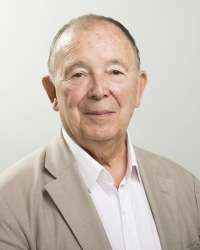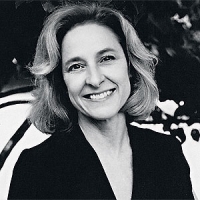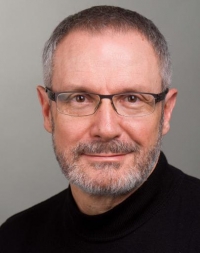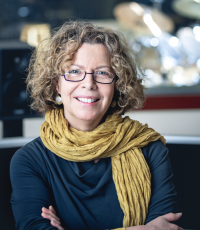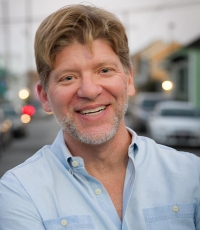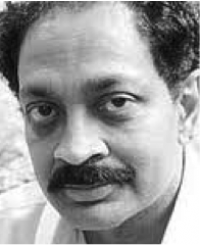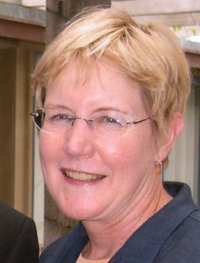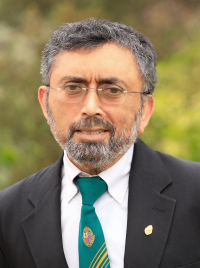Evolutionary Origins of Art and Aesthetics
Biographical Sketches: Speakers
Collège de France & Institut Pasteur
Jean-Pierre Changeux is Honorary Professor at the Collège de France & Pasteur Institute Paris and International Faculty, Kavli Institute for Brain & Mind, University of California San Diego. At the advent of the era of molecular biology, Jean-Pierre Changeux pioneered the study of the role of conformational changes linking topographically distinct sites in regulatory processes. His PhD studies, carried under the supervision of Jacques Monod, provided the experimental and conceptual bases for the formal model of allosteric interactions in regulatory proteins, subsequently put forward in a joint paper that had become one of the most quoted papers of the scientific literature. Throughout a long career, Changeux has consistently built upon and extended his early theory, to spawn many new and flourishing fields of investigation.
His main contributions and discoveries in the course of the past 50 years are centered on the general theme of receptors and their allosteric transitions, primarily in the nervous system and were initiated by the first identification of a neurotransmitter receptor: the nicotinic acetylcholine receptor. He combined approaches from supposedly disparate disciplines of pharmacology, molecular biology and developmental biology as well as behavioural and pathological studies, as and when required, to demonstrate that the nicotinic receptor is a bona fide allosteric protein. He further elucidated the molecular mechanism through which drugs modulate receptor efficacy when binding to distinct allosteric sites thereby opening a revolutionary new avenue in the field of drug discovery.
His contributions to understanding the regulation of acetylcholine receptors in turn contributed to advancing our understanding of the nature of long-term synaptic plasticity within neural networks and on the neural bases of cognitive functions up to conscious processing. The consequences for human pathology are immense: from the understanding of drug addiction to the therapeutics of neuropsychiatric diseases.
The publication of his book Neuronal Man: The Biology of The Mind in 1985 brought Changeux celebrity status among the wider public. Since then he has authored or co-authored several other books notably, Conversations on Mind Matter and Mathematics with the mathematician Alain Connes (1998), What Makes Us Think with the philosopher Paul Ricoeur (2002), Physiology of truth (2005),The Enchanted Neurons with the composers P.Boulez and P.Manoury (2019) which initiated an instructive dialogue between neuroscience and other disciplines.
Jean-Pierre Changeux’s academic accolades include the Gairdner foundation award in 1978, the Wolf prize in 1983, the Louis Jeantet Prize for Medicine in 1993, the Balzan Prize in 2001, the National Academy of Sciences Award in Neurosciences USA in 2007, the Olav Thon international research award in biomedicine, Oslo, Norway, 2016, the Albert Einstein World Award of Science, Hong Kong, 2018.
University of Southern California
Antonio Damasio is an internationally recognized leader in neuroscience. His research interests include the neurobiology of mind and behavior, with an emphasis on emotion, decision-making, memory, communication, and creativity. His work has has helped to elucidate the neural basis for the emotions and has shown that emotions play a central role in social cognition and decision-making. His work has also had a major influence on current understanding of the neural systems, which underlie memory, language and consciousness. Damasio directs the newly created USC Brain and Creativity Institute.
Community Member
Dr. Helen E. Fisher is a Visiting Research Professor and member of the Center for Human Evolutionary Studies in the Department of Anthropology at Rutgers University. From 1984 to 1994 she was a Research Associate in the Department of Anthropology at The American Museum of Natural History. She received her Ph.D. in Physical Anthropology at the University of Colorado with a dissertation on the evolution of human female sexuality and the origin of the nuclear family.
Dr. Fisher has been on the national lecture circuit since l983 discussing the evolution of human sexuality, marriage and divorce, gender differences in the brain and behavior, and the future of men, women, business, sex and family life. Her lectures include speeches at the American Museum of Natural History, the Smithsonian Institution, the University of Michigan, the C.G. Jung Institute of Chicago, Planned Parenthood of NYC, the U.S Department of Agriculture, the American Menopause Foundation, the Brookings Institution, Bank of America, Salomon Smith Barney, Fortune Magazine, Columbia Business School, and the American Press Institute, as well as academic and business conferences in the United States, Canada, Europe and Asia. During 1994-95 Dr. Fisher lectured on college campuses as a Visiting Scholar of the Phi Beta Kappa Society.
Collège de France
Professor Jean-Jacques Hublin is Chaire de Paléoanthropologie at the Collège de France and the former Director at the Max Planck Institute of Evolutionary Anthropology in Leipzig (Germany). He has also served as an honorary professor at the University of Leipzig since 2006 and has taught at the University of Leiden (Netherlands) since 2010. Prof. Hublin obtained his PhD in Vertebrate Paleontology and Human Paleontology at the University of Pierre et Marie Curie in Paris (1978), and completed his habilitation in Anthropology at the University of Bordeaux (1991). He first joined the Centre National de la Recherche Scientifique (1981-2000) as a research fellow before continuing as a research director and team leader. Prof. Hublin then joined higher education as a professor at the University of Bordeaux 1 (1999-2004). He has also taught as a visiting professor at the University of California at Berkeley (1992), Harvard University (1997), and Stanford University (1999 and 2011). In 2004, Prof. Hublin joined the Max Planck Institute of Evolutionary Anthropology in Leipzig (Germany) where he created and developed the Department of Human Evolution. He is one of the founders of the European Society for the Study of Human Evolution (ESHE), which connects researchers from European countries. He has had the honor of chairing ESHE since its creation in 2011. Since the 1990s, Prof. Hublin has played a pioneering role in the development of virtual paleoanthropology. In addition to his contributions to the understanding of the African origins of Homo sapiens, he is a well-known specialist on Neandertals. He has played a central role in understanding their origin and evolution and in analyzing the processes of their replacement by Homo sapiens. More recently he has been involved in the study of Denisovans in Russia and China. Finally, Prof. Hublin made a major contribution to the study of the history of paleoanthropology with the publication of a biography of Jacques Boucher de Perthes, French founder of Prehistory. In 1990 Prof. Hublin received the F. Millepierre Prize from the Académie Française; in 2013, the Rudolf-Virchow Prize from the Prinz Maximilian zu Wied Foundation; in 2017, the Royal Wissam al-Kafaa al-Fikria from his Majesty Mohamet VI in person. In 2019, he received the French distinction of Knight of the Legion of Honor.
University of Washington
Dr. Patricia K. Kuhl is the Bezos Family Foundation Endowed Chair for Earily Childhood Learning, Co-Director of the UW Institute for Learning and Brain Sciences, Director of the University of Washington's NSF Science of Learning Center, and Professor of Speech and Hearing Sciences. She is internationally recognized for her research on early language and brain development, and studies that show how young children learn. Dr. Kuhl’s work has played a major role in demonstrating how early exposure to language alters the brain. It has implications for critical periods in development, for bilingual education and reading readiness, for developmental disabilities involving language, and for research on computer understanding of speech.
Dr. Kuhl is a member of the American Academy of Arts and Sciences, the Rodin Academy, and the Norwegian Academy of Science and Letters. She was awarded the Silver Medal of the Acoustical Society of America in 1997, and in 2005, the Kenneth Craik Research Award from Cambridge University. She received the University of Washington's Faculty Lectureship Award in 1998, and in the 2007, Dr. Kuhl was awarded the University of Minnesota’s Outstanding Achievement Award. Dr. Kuhl is a Fellow of the American Association for the Advancement of Science, the Acoustical Society of America, and the American Psychological Society. In 2008 in Paris, Dr. Kuhl was awarded the Gold Medal from the acoustics branch of the American Institute of Physics for her work on learning and the brain.
Dr. Kuhl was one of six scientists invited to the White House in 1997 to make a presentation at President and Mrs. Clinton's Conference on "Early Learning and the Brain." In 2001, she was invited to make a presentation at President and Mrs. Bush’s White House Summit on “Early Cognitive Development: Ready to Read, Ready to Learn." In 1999, she co-authored The Scientist in the Crib: Minds, Brains, and How Children Learn (Morrow Press).
Dr. Kuhl's work has been widely covered by the media. She has appeared in the Discovery television series "The Baby Human"; the NOVA series "The Mind"; the "The Power of Ideas" on PBS; and "The Secret Life of the Brain," also on PBS. She has discussed her research findings on early learning and the brain on The Today Show, Good Morning America, CBS Evening News, NBC Nightly News, NHK, CNN, and in The New York Times, Time, and Newsweek.
BRAMS, Université de Montréal
Dr. Peretz is a professor of Psychology at the University of Montreal and the holder of a Canada Research Chair in neurocognition of music. She is renowned for her work on congenital and acquired musical disorders (amusia) and on the biological foundations of music processing in general. In 2005, Dr. Peretz became the founding co-director of the international laboratory for Brain, Music, and Sound research (BRAMS), a unique multi-university consortium that is jointly affiliated to Université de Montréal and McGill University. Dr. Peretz is the founding Editor-in-chief of the open-access Frontiers of Auditory Cognitive Neuroscience and is a fellow of the Royal Society of Canada and of the American Psychological Association.
University of Louisiana at Lafayette
Daniel Povinelli is a professor of biology at the University of Louisiana at Lafayette. Dr. Povinelli received his undergraduate degree from the University of Massachusetts at Amherst and his doctorate in physical anthropology from Yale University. His primary research interests are in characterizing the evolution of higher-order cognitive functions in the great ape/human clade. He is the recipient of a National Science Presidential Young Investigator Award, The American Psychological Associations’ Distinguished Award for an Early Career Contribution to Psychology, and a James S. McDonnell Foundation Centennial Fellow Award. His latest book is The Aesop’s Fable Paradigm: An Unlikely Intersection of Folklore and Science (2021, with K.B. Barker).
University of California, San Diego
V.S. Ramachandran is Director of the Center for Brain and Cognition and a distinguished professor with the psychology and neurosciences programs at UC San Diego, as well as an adjunct professor of biology at the Salk Institute. Ramachandran initially trained as a doctor from Stanley Medical College, India, and subsequently obtained a Ph.D. from Trinity College at the University of Cambridge. Ramachandran’s early work was on visual perception, but he is best known for his experiments in behavioral neurology, which despite their apparent simplicity, have had a profound impact on the way we think about the brain. Ramachandran has published over 180 papers in scientific journals (including five invited review articles in Scientific American). His awards and honors include fellowships at All Souls College, Oxford and Stanford University; The Henry Dale medal awarded by the Royal Institution, which also elected him honorary life member; the CU Ariens Kappers medal from the Royal Nederlands Academy of Sciences; and awarded India's third highest honorific title "Padma Bhushan" by the president of India. He gave the annul BBC Reith Lectures in the UK and the Gifford Lectures in Glasgow. In 2011, TIME Magazine named him one of the 100 most influential people in the world.
UC San Diego
Margaret Schoeninger is Distinguished Professor Emerita of Anthropology at UC San Diego, a Research Archaeologist in the Glenn Black Laboratory of Archaeology at Indiana University, and Emerita Co-Director of CARTA. She has done fieldwork in North America, Mexico, Pakistan, India, Kenya, and Tanzania as well as laboratory research on carbon, nitrogen, and oxygen stable isotope ratio analysis in biological tissues and food component analysis of traditional foods. Her major interest is in the evolution of human diet particularly as it informs our understanding of the appearance and evolution of the human lineage.
UC San Diego School of Medicine
Ajit Varki is a Distinguished Professor of Medicine and Cellular & Molecular Medicine, Emeritus Co-Director of CARTA, Emeritus Co-Director of the Glycobiology Research and Training Center at UC San Diego, and Adjunct Professor at the Salk Institute. He received basic training in physiology, medicine, biology, and biochemistry at the Christian Medical College (CMC), Vellore, The University of Nebraska, and Washington University in St. Louis. He also has formal training and board certification in internal medicine, hematology, and oncology. Varki is the executive editor of Essentials of Glycobiology (Cold Spring Harbor Press, 4th Edition, 2022) and is recipient of a MERIT award from the NIH, and an American Cancer Society Faculty Research Award. Honorific elections include the American Academy of Arts and Sciences, the National Academy of Medicine, the American Society for Clinical Investigation, and the Association of American Physicians. He is also recipient of the three highest honors in his field, the Karl Meyer Award of the Society for Glycobiology, the International Glycoconjugate Organization Award and the Rosalind Kornfeld Award for Lifetime Achievement in Glycobiology. He is recognized for creating the first major open access research journal (J. Clin. Invest., 1996) as well as the first major open access textbook (Essentials of Glycobiology, 2009). He was honored with the Old Cottonian of Eminence Award at the 150th Anniversary of Bishop Cotton Boys School, Bangalore, India, (2015) as well as a Distinguished Faculty Medal and Oration at his medical school alma mater, CMC, Vellore. Significant past appointments include: Co-Head, UC San Diego Division of Hematology-Oncology; President of the Society for Glycobiology; Editor-in-Chief of the Journal of Clinical Investigation; Interim Director of the UC San Diego Cancer Center, President of the American Society for Clinical Investigation, and UC San Diego Associate Dean for Physician-Scientist Training. Varki's research interests are focused on a family of cell surface sugars called sialic acids, and their roles in biology, evolution and disease. Currently, active projects are relevant to the roles of sialic acids in microbial infectivity, the regulation of the immune response, the progression and spread of tumors, aging, and unique aspects of human evolution. His group is particularly intrigued to find multiple interrelated differences in sialic acid biology between humans and our closest evolutionary cousins, the "great apes." These differences are a signature of the events that occurred during the last few million years of human evolution, and appear to be relevant to understanding several aspects of the current human condition, both in health and disease. Varki’s book, Denial (Twelve, Hachette Books, 2013), explores a novel "Mind Over Reality Transition” (MORT) theory that denying reality and personal mortality was a key step in allowing the emergence of a full theory of mind, and in the origin of our species.
New York University
Randall White is Professor of Anthropology at New York University and one of the world’s leading specialists in the study of Paleolithic art and personal adornment. White was one of the first to recognize the evolutionary importance of personal adornment and its critical role in the organization and demographic expansion of modern humans. His work on the origins of art and personal adornment in Europe has taken him to various museums from France to Russia. He recently published the lavishly illustrated book Prehistoric Art: The Symbolic Journey of Humankind (New York: Harry Abrams, 2003).
The Abri Castanet excavations at Sergeac in the Dordogne region of SW France
White has worked on the Upper Paleolithic cultures of France for more than 30 years and is currently director of excavations at the 35,000 year old ornament-rich site of Abri Castanet in SW France. He is also a member of several other research teams and is responsible for the analysis and publication of hundreds of early Upper Paleolithic personal ornaments from modern excavations at sites such as Isturitz, Brassempouy and Arcy-sur-Cure.
Some of the hundreds of Aurignacian ivory beads from Abri Castanet In 1993 White was instrumental in the re-discovery, authentification and publication of a long-missing private collection of seven Ice Age female statuettes from Grimaldi, Italy. This work led him to undertake a massive study of more than 100 Gravettian female statuettes, bringing into focus the techniques used to fabricate them and new directions in their interpretation.
Professor Randall White in Berlin, Germany, studying the shell ornaments from the Combe-Capelle burial.
Over the past twenty years White has been instrumental in bringing to light, and publishing important Paleolithic collections acquired early in this century by North American museums. This endeavor has led him to a detailed investigation of the history of French Paleolithic archaeology. His most recent book (2006), entitled L’affaire de l’abri du Poisson : Patrie et préhistoire, is the first in a series of planned historical works on French Paleolithic archaeology in the crucial period immediately prior to World War I. He is currently working on a second, more massive volume entitled, Préhistoire et patrie: l’affaire Hauser et la politique de l’avant-guerre.
